CDD, Palaiseau, France.| Entreprise/Organisme : | Télécom Paris | | Niveau d'études : | Doctorat | | Date de début : | Automne 2025 | | Durée du contrat : | 3 ans (renouvelable une fois) | | Description : | Description de l'offre d'emploi
Qui sommes-nous ?
Télécom Paris, école de l’IMT (Institut Mines-Télécom) et membre fondateur de l’Institut Polytechnique de Paris, est une grande école du top 5 des écoles d’ingénieurs généralistes françaises.
La Raison d’Être de Télécom Paris est de former, imaginer et entreprendre pour concevoir des modèles, des technologies et des solutions numériques au service d’une société et d’une économie respectueuses de l’humain et de son environnement.
Nous recherchons une enseignante-chercheure ou un enseignant-chercheur en théorie de l’apprentissage statistique, le poste est à pourvoir au sein du département Image, Données, Signal (IDS).
Les recherches seront effectuées au sein du laboratoire du traitement et de la communication de l'information (LTCI) Information Processing and Communication Laboratory (LTCI). Depuis 2017, ce laboratoire continue de mener les recherches développées au sein du laboratoire CNRS du même nom. Fondé en 1982, le LTCI couvre un très large spectre de recherches reconnues au niveau international, qui concernent l'informatique, les réseaux, la science des données, le traitement des images et des signaux et l'intelligence artificielle. Le laboratoire est également actif dans l'ingénierie des systèmes comme dans les mathématiques appliquées.
Le poste s'inscrit dans une stratégie de recherche du laboratoire autour de l'intelligence artificielle et de l'apprentissage automatique, qui sont des compétences clefs de Télécom Paris. Il participe aussi à la dynamique de site de l'Institut Polytechnique de Paris qui cultive un éco-système où foisonnent les initiatives en Intelligence Artificielle, qu'elles soient entre équipes académiques ou avec des groupes industriels.
Le/la candidat/e sera accueilli/e au sein de l’équipe Statistique, Signal et Apprentissage (S²A) du département Images, Données, Signal.
Centre Hi !Paris et Cluster IA France 2030
Ce recrutement est rendu possible grâce à Hi!Paris (https://www.hi-paris.fr), le centre interdisciplinaire sur l'analyse des données et l'IA pour la science, l'entreprise et la société créé par l'Institut Polytechnique de Paris (IP Paris) et HEC Paris et rejoint par Inria (Centre Inria de Saclay) et le soutien financier de France 2030 IA Cluster. Il a bénéficié d'un financement et d'un soutien importants de la part de grandes entreprises multinationales. À plus grande échelle que jamais, Hi!Paris mène des recherches de pointe et interdisciplinaires en IA et en science des données, façonnant des perspectives stratégiques pour les décideurs économiques et publics en France et en Europe. En 2024, le centre a été officiellement désigné comme « cluster IA » par le gouvernement français.Le centre accueille des chercheurs de premier plan en IA et Data Science, il propose des séminaires, des ateliers, des écoles d'été, des groupes de lecture, des financements par appels à projets et le soutien précieux d'une équipe d'ingénieurs.
La personne recrutée bénéficiera d'une bourse de démarrage pour financer ses activités de recherche
Vos principales missions seront de :
Participer à la conception et la mise en œuvre d’enseignements dans son domaine scientifique.
Conduire des recherches dans son domaine scientifique
Participer au développement de partenariats, de collaborations et de relations contractuelles dans son domaine scientifique.
Pré-requis du poste
Pour réussir dans ce rôle, vous détenez un doctorat et vous maîtrisez l'anglais.
La chercheuse ou le chercheur recruté(e) développera ses recherches en théorie de l’apprentissage statistique, en particulier en lien avec les questions méthodologiques soulevées par les méthodes d’IA générative. En effet, avec les progrès récents réalisés dans le domaine de l’IA générative et son usage intensif aujourd’hui, de nouvelles données structurées (e.g. textes, images, vidéos, graphes, code) sont produites en masse par des modèles d’une grande complexité. Les progrès réalisés dans la capacité à générer des variables aléatoires à l’aide de techniques pseudo-probabilistes a transformé les méthodes numériques et statistiques au siècle dernier, avec l’élaboration de nombreuses variantes des algorithmes de Monte-Carlo pour l’approximation, l’optimisation, la simulation de phénomènes aléatoires (éventuellement rares et/ou extrêmes), le débruitage ou l’inférence. De la même façon, les informations complexes générées par les (grands) modèles d’IA sont d’ores et déjà utilisées en pratique à des fins diverses (e.g. augmentation des données, agents conversationnels, deepfakes). Pour qu’elle puisse contribuer véritablement à l’amélioration des systèmes avec des garanties, l’utilisation des données synthétiques générées par les ‘grands modèles ‘d’IA appelle le développement de nouvelles analyses, notions théoriques et méthodes algorithmiques, permettant en particulier de:
· Comprendre et maîtriser l’impact des biais des modèles génératifs sur la performance et la capacité de généralisation
· Générer des données structurées (e.g. à valeurs dans des espaces non euclidiens) à partir d'un cahier des charges (propriétés à satisfaire) de manière fiable et robuste
· Générer des données en limitant la supervision et en exploitant les connaissances et propriétés (sémantiques, physiques, mathématiques)
Pourquoi nous rejoindre ?
Vous travaillerez dans un environnement en plein développement, agréable, verdoyant et accessible (notamment pour les personnes en situation de handicap) à seulement 20 km de Paris (RER B et C, proximité des grands axes routiers, navette mutualisée en partance de la Porte d'Orléans). Vous bénéficierez de :
49 jours de congés annuels (CA + RTT)
Flexibilité des horaires de travail (en fonction de l'activité du service)
Télétravail 1 à 3 jours/semaine possible
Remboursement abonnement transports en commun à 75%
Proximité de nombreuses infrastructures sportives, conciergerie, parking souterrain, restauration interne...
Associations du personnel au niveau de l'école et du ministère
A savoir : nos cotisations sociales sont moins élevées que dans le secteur privé
Modalités de candidature :
Pour candidater envoyez les éléments suivants :
· un CV détaillé
· une lettre de motivation
· les rapports de thèse et de soutenance
· les perspectives d’enseignement (activités menées, méthodes pédagogiques utilisées, projet d’enseignement de formation initiale et formation continue (max 4 pages)
· les perspectives de recherche (synthèse des principaux axes de recherche, projet de recherche) (max 4 pages)
· une copie des 3 principales publications
· les noms et adresses mail de deux personnalités qualifiées pouvant donner un avis éclairé sur la candidature
Le processus de sélection se déroule en 4 étapes :
· Échange avec l’équipe d’accueil pour établir une liste des candidats présélectionnés
· Entretien préalable avec les Ressources Humaines
· Audition par la commission de recrutement et classement des candidats retenus
. Entretien final avec le directeur de Télécom Paris
Informations complémentaires :
Fin candidature : 15 septembre 2025
Type de contrat : CDD de 3 ans
Contacts : Stephan Clémençon, stephan.clemencon@telecom-paris.fr; Florence Tupin, florence.tupin@telecom-paris.fr
Description de poste complète ici | | En savoir plus : | https://institutminestelecom.recruitee.com/o/enseignant-chercheur-en-theorie-de-lapprentissage-stati
2025_ChaireExt_S2A.pdf | | Contact : | stephan.clemencon@telecom-paris.fr |
|



















